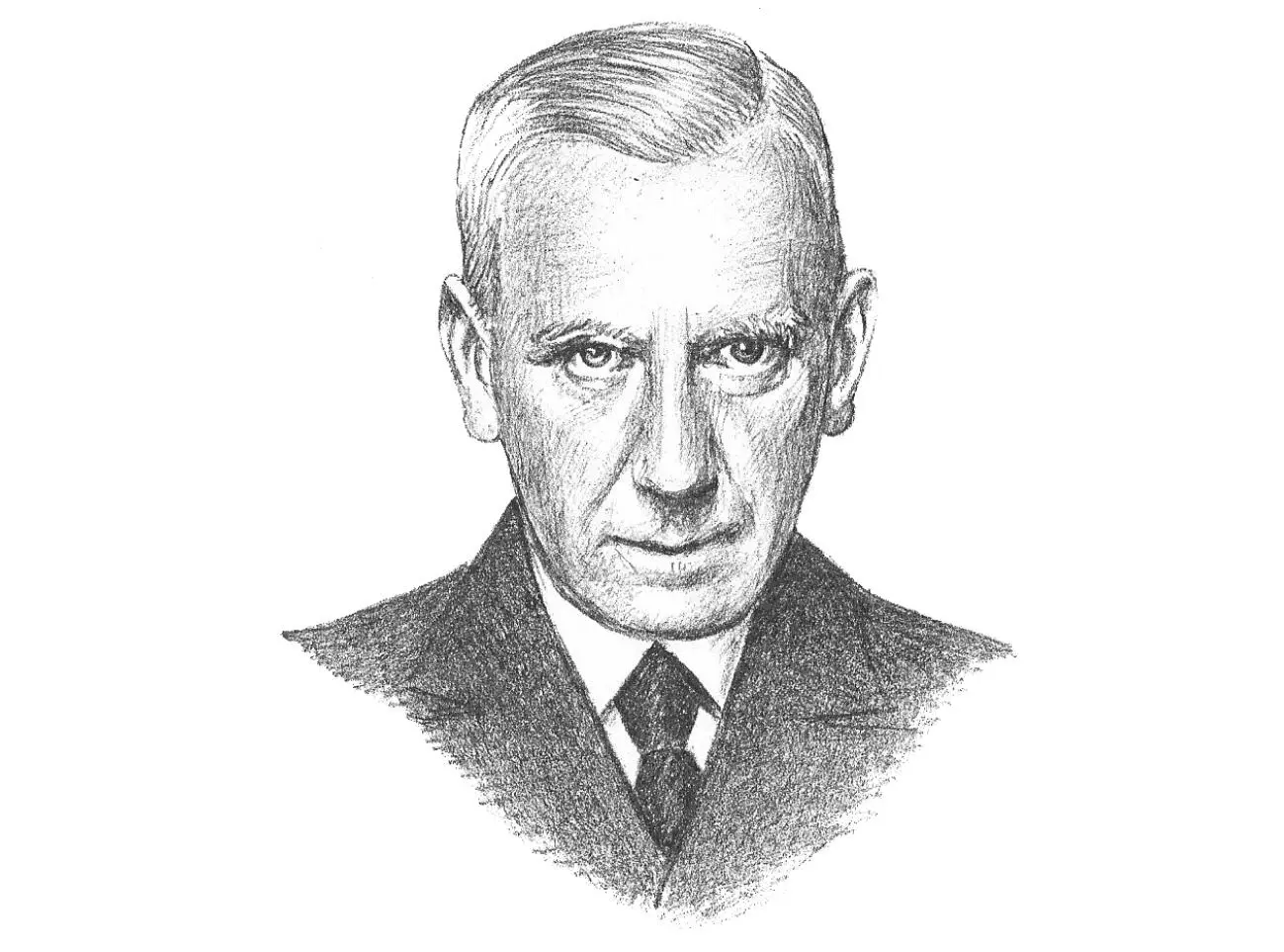1 ...7 8 9 11 12 13 ...28 A pious Protestant all his life, he was nevertheless fascinated by the spiritualism and rituals of the Catholic Church, and believed in the supernatural. Moral precepts played an established part in his life – though not as clearly defined a part as with Goerdeler or Beck. Canaris’s compass, unlike theirs, gave him a firm general direction of travel built on strong principles. But when it came to the application of these, he was serpentine, flexible and full of ruses and devices. A few meanderings here and there were of little consequence, provided his basic moral foundation remained uncompromised. His character was founded on a deep strain of ambivalence. One observer commented, ‘Canaris had a profound sense of adventure, including the adventure of evil itself.’ His was a mind capable of coping with paradox, and, in the right circumstances, he did not find it difficult to accept that ends could justify means, provided they were carefully chosen and judiciously applied.
One other unusual feature marked Canaris’s personality. He never looked back. What had gone had gone, and was of no consequence.The only thing that mattered to him was what was ahead.
Wilhelm Canaris had a gentle disposition. ‘He hated violence in itself,’ a friend noted. ‘[He] was repelled by war … [and had] an exaggerated love for animals. “Anyone who does not love dogs, I judge out of hand to be an evil man,” he once announced … I never witnessed in Canaris a trace of crudity or brutality … only sudden revelations of his deep-seated humanity.’ Another of his contemporaries noted that he was, in all his dealings and whatever the provocation, invariably ‘a kind person’. His wife Erika described him as a man of ‘tender emotions’.

Wilhelm Canaris
Politically, Canaris was a natural conservative. But his views were moderately held, and tempered always with an instinct for humanity and an internationalist world view. Later on, possibly under the influence of Goerdeler, he believed that after the war there should be a United States of Europe led by a triumvirate of Britain, France and Germany.
Physically, he was small and slight. Frequently mocked for his lack of stature by his classmates, he left school to enlist in the Imperial German Navy at the age of eighteen, later claiming that his choice of this career was due to his famous (but entirely unrelated) Greek ‘ancestor’.
The young Wilhelm Canaris first came to prominence in Germany (and Britain) as a result of a First World War game of hide-and-seek played out along the west coast of South America between the Royal Navy light cruiser HMS Glasgow and the German light cruiser Dresden , on which Canaris was a junior officer. On 14 March 1915 the Glasgow finally found the Dresden sheltering in a bay on an isolated island in Chilean waters. Following negotiations between the two warships, in which Canaris (who spoke excellent English and had a reputation for exquisite manners) was involved, the Dresden ’s captain, realising he was cornered, opened her sea-cocks, scuttled his ship and surrendered his German crew to internment. Canaris, who also spoke perfect Spanish (he was said to be fluent in six languages) did not remain behind bars for long. On 4 August 1915 he escaped captivity and made his way disguised as a peasant by train, foot, boat and horseback over the Andes to Buenos Aires. From there, assuming the identity of a Chilean widower, ‘Señor Reed Rosas’, young Lieutenant Canaris took a slow boat home through, among other places, Falmouth (where he assisted British immigration officials with information on a fellow traveller). He finally arrived back in Germany on 30 September 1915.
Towards the end of that year, the slight figure of ‘Señor Reed Rosas’ turned up again, this time in Madrid, where he took out a lease on a flat not far from the German embassy. Wilhelm Canaris, alias Reed Rosas, alias ‘Carl’, codename ‘Kika’ (a childhood nickname which means ‘peeker’), was on a spying mission for his country.
Despite suffering recurrent bouts of malaria, exacerbated by the excessively hot summers and bleak winters of Madrid, Canaris found that his posting to Spain was the start of a love affair with the Iberian peninsula and its people that would last the rest of his life. ‘I like Italians, just as I like Greeks and Spaniards,’ he told a friend. ‘If a Spaniard gives me his word of honour, I place confidence in it. I am much more cautious towards the Greeks and especially the Italians. In Italy sincerity is often camouflaged behind different colours, like the slices on a Neapolitan cake.’
Ordered home through Italy, Canaris, still masquerading as Señor Rosas, and accompanied by a Spanish priest also travelling under a false identity, left Spain for France on 21 February 1916. Both men claimed to be travelling to Switzerland to take the cure for tuberculosis (an illness it was easy for Canaris to feign because of his malaria). After crossing the French–Italian border without difficulty, the pair headed for Domodossola on the Swiss–Italian border, thirty kilometres north of the Italian lakes.
By now, however, the French and the British had alerted the Italian border guards to look out for a Chilean passport in the name of Reed Rosas. The fugitives were arrested on 24 February, and summarily thrown into jail. An extensive period of interrogation in the none-too-gentle hands of Italian counter-intelligence followed, during which Canaris took to biting his lip so that he could convincingly spit blood to back up his claim to tuberculosis. Soon German and Chilean diplomatic wheels began to turn in Madrid. Under pressure from the Chilean government, the Italian authorities agreed not to hang the pair, and bundled them on board a freighter bound for Cartagena. On 15 March, Canaris arrived back in Madrid, emaciated, convulsed with shivering and racked with a roaring malarial fever.
The experience of being arrested, jailed, very nearly hanged and struck down with malaria ought to have put him off spying forever. But it didn’t. Over the next year he made the contacts and put together the spy networks in Spain and Portugal that would form the foundation of his later work on the Iberian peninsula during the 1930s and 40s.
He swiftly became a familiar of the shadowy demi-monde of spies, corrupt officials, bankers, money-launderers, arms traders, adventurers, and all the hangers-on who circle like scavengers around rotten meat in the neutral spaces of any conflict. Among these were two men who would be of special interest to him in the future. The first was Basil Zaharoff, a director of the British engineering company Vickers Armstrong, an occasional British agent and one of the world’s most notorious arms salesmen. The second was a Mallorcan fisherman and tobacco-smuggler called Juan March. March, whose fingers were in almost every dubious Iberian pie and who ended his life a very rich man because of it, was one of Canaris’s most important agents. According to rumour and the voluminous files held on him in the British National Archives, he also performed the same function for the British Secret Intelligence Service (SIS, also known as MI6), a fact of which both sides were probably very well aware.
In late 1916, with his work in Spain finished, Canaris made a second attempt to get back to Germany, finally reaching safe territory on 9 October 1916, when he was landed from the German submarine U-35 at the Croatian port of Cattaro.
On his return to Germany he was awarded the Iron Cross First Class and immediately posted back to regular service, commanding a succession of U-Boats in the Mediterranean and sinking several Allied ships before the war ended.
Читать дальше













